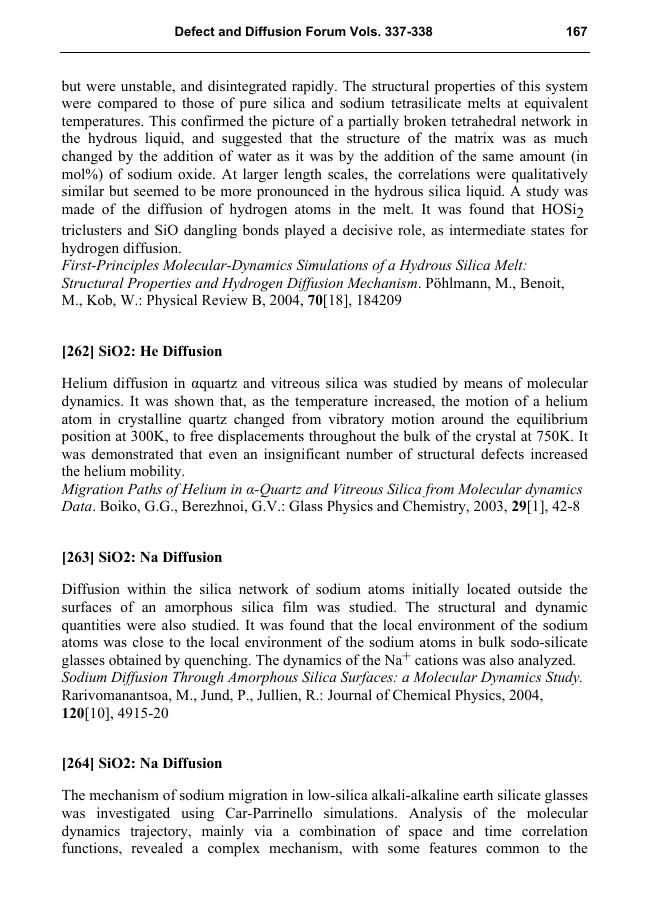2013 - Trans Tech Publications
E-book
Digital Version
Download | Copy/paste | Printing
Molecular Dynamics and Diffusion
368 p.
- The molecular dynamics technique was developed in the 1960s as the outgrowth of attempts to model complicated systems by using either a) direct physical simulation or (following the great success of Monte Carlo methods) by b) using computer techniques. Computer simulation soon won out over clumsy physical simulation, and the ever-increasing speed and sophistication of computers has naturally made molecular dynamics simulation into a more and more successful technique. One of its most popular applications is the study of diffusion, and some experts now even claim that molecular dynamics simulation is, in the case of situations involving well-characterised elements and structures, more accurate than experimental measurement. The present double volume includes a compilation (over 600 items) of predicted solid-state diffusion data, for all of the major materials groups, dating back nearly four decades. The double volume also includes some original papers: ''Determination of the Activation Energy for Formation and
- Migration of Thermal Vacancies in 401.0 Casting Aluminum Alloy'' (N.A.Kamel et al.), ''A Study of the Effect of Natural Aging on Some Plastically Deformed Aluminum Alloys using Two Different Techniques'' (N.A.Kamel), ''Estimation of Crystalline Size of Deformed 5251 Al Alloy using PALT and XRD Techniques'' (M.A.Abdel-Rahman et al.), ''Determination of the Activation Energy for Formation and Migration of Thermal Vacancies in 2024 Aircraft Material using Different Techniques and Methods'' (N.A.Kamel), ''Annealing Study of Al-Mg Wrought Alloys using Two Different Techniques and Estimation of the Activation Enthalpy of Migrating Defects'' (G.Attallah et al.), ''Studying the Formation of Fe2SiO4 and Pearlite Phases in Iron-Silica Sand Nanoparticle Composites'' (T.Ahmad et al.), ''Studies of Knight Shifts and Hyperfine Structure Constants of Tl2Ba2CuO6+y'' (M.Q.Kuang et al.). [Publisher's text].
- Special access authorizations may apply; please contact us for further information.
-
Information
ISBN: 9783038261193



